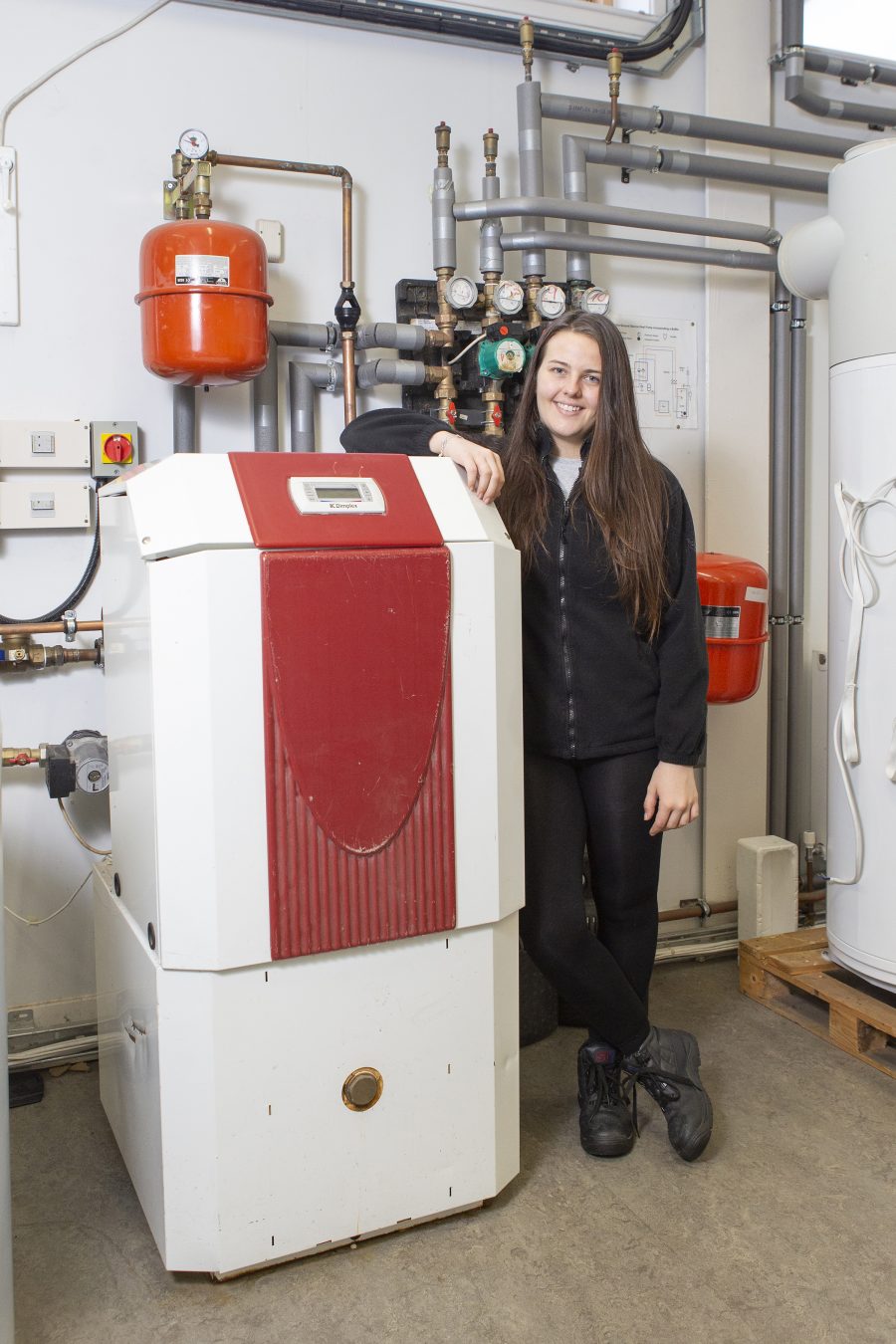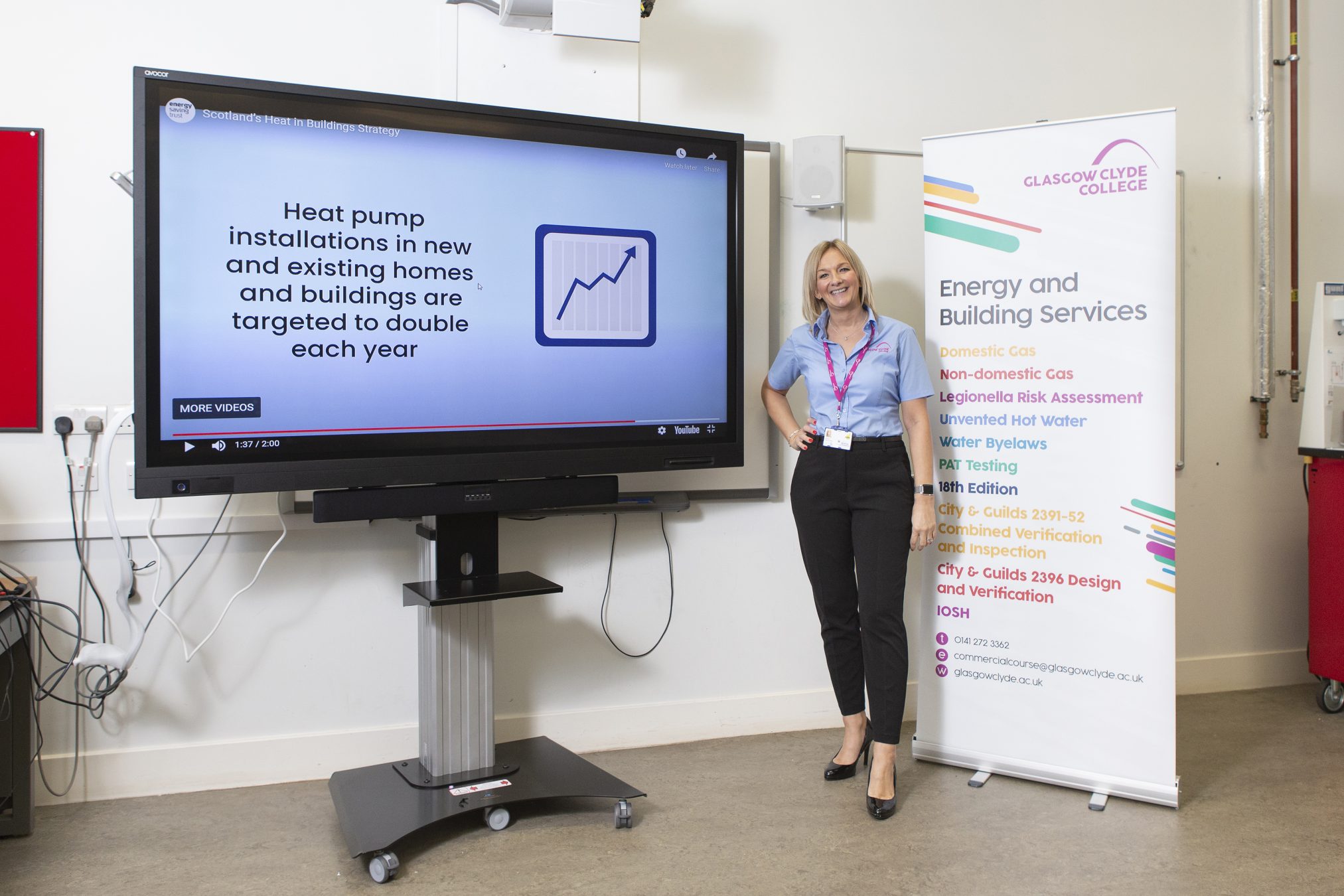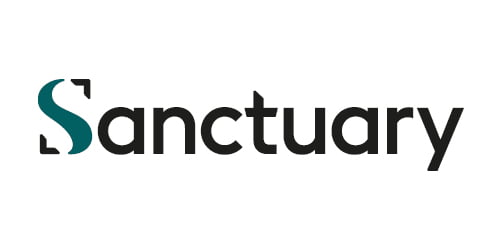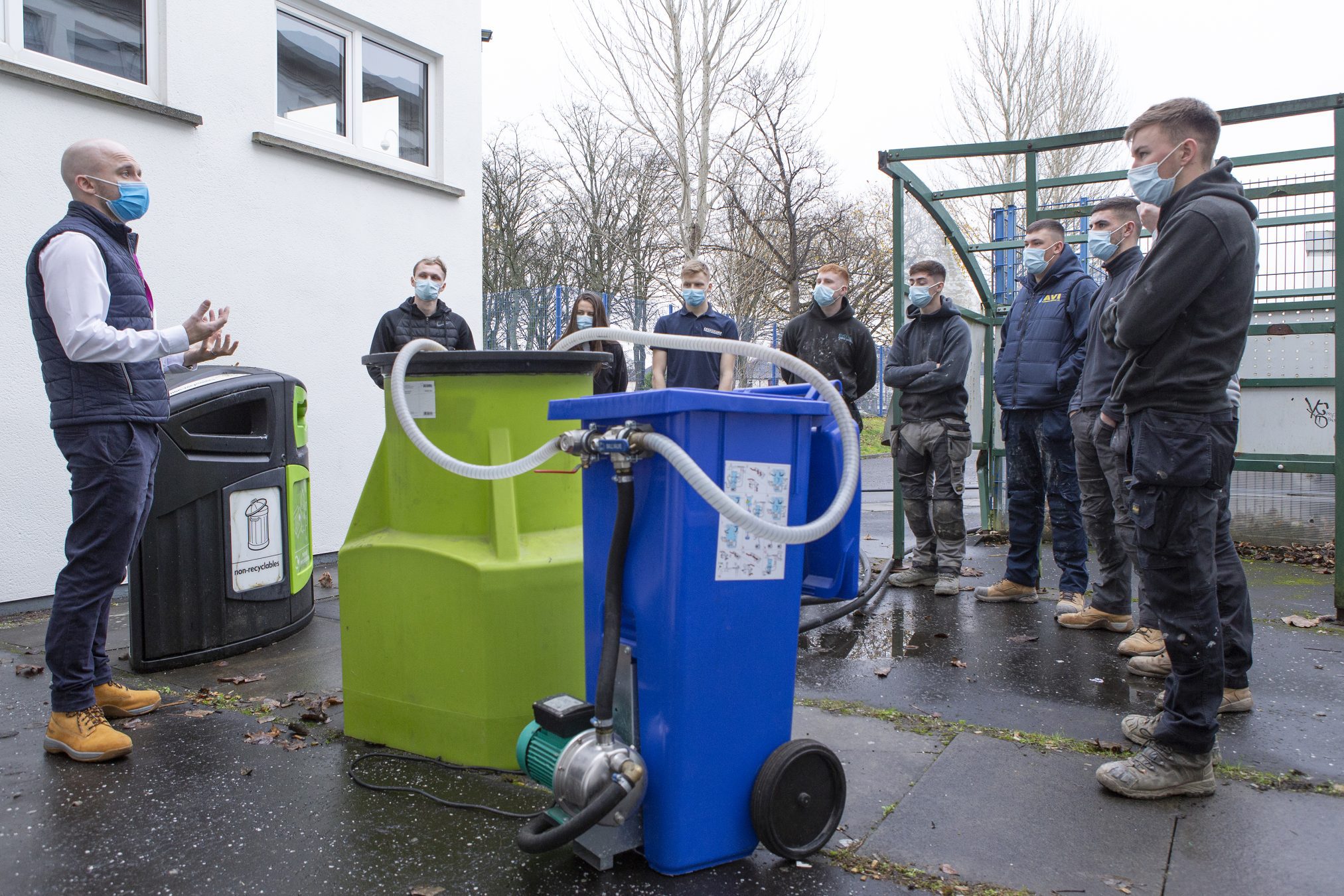Location notice
Please note that this page contains information and links most relevant for people living in Scotland.
The recent Scottish Government’s Heat in Buildings Strategy estimates that by 2030, the vast majority of Scotland’s 170,000 off gas homes will need to switch to zero emissions heating systems like heat pumps.
Many businesses in Scotland are now looking at how they can cope with the inevitable high demand of heat pump installations. One way to get ahead of the game is to enrol your employees and apprentices in heat pump installation and maintenance training courses.
This is exactly what Sanctuary did with apprentice plumber, Nicole McGarvey.

What are the benefits of upskilling?
Nicole was pointed towards funded training at Glasgow Clyde College. While completing her Scottish Vocational Qualifications (SVQs) to become a plumber, Glasgow Clyde College offered Nicole three extra qualifications including Level 3 in plumbing and heating, unvented hot water, water byelaws and heat pumps.
Through balancing the heat pump course with her work at Sanctuary, Nicole was able to complete the heat pump course in two weeks. If you are a qualified full-time heating and plumbing professional, you would be able to complete the course in just three days.
“The three extra qualifications are a bonus which you don’t get with your SVQ. The students know the changes that are coming along so they all jumped at the opportunity to gain these extra qualifications.”
Nicola Murray, Curriculum Manager, Glasgow Clyde College

There are huge benefits to both Nicole and her business from completing the heat pump course:
“It’s a good idea to upskill now because of the changes that are coming in. You’re better to do it now rather than regretting it later.”
With the Scottish Government aiming to double heat pump installations in new and existing homes and buildings each year, more funding and opportunities are becoming available for installers to upskill.
By completing the course, Nicole is now able to install heat pumps. Companies putting their employees through this training will future-proof their business and benefit from the economic opportunity presented by the increased demand for heat pumps in Scotland.
As a member of the United Nations’ Race to Zero campaign, Sanctuary has pledged to reduce its carbon footprint and become a net zero carbon organisation as quickly as possible. It views upskilling its staff on sustainable technologies as a big part of this:
“We’re committed to sustainable practices across all areas of our business, and our training and apprenticeship programmes have a key role to play in this. By training our staff, we can ensure we are delivering a continuing quality service to our residents while also meeting our environmental responsibilities. We are also ensuring our existing staff are not left behind when more traditional energy provision is reduced. Supporting our staff through the future transition is a key part of ensuring sustainability in terms of climate, service and jobs.
“Given the climate change targets that have been set nationally and internationally it is evident that things will change. Sanctuary is undertaking a large-scale project investigating what options we have available to us to ensure we meet these targets, while also ensuring our residents are not impacted financially. We envisage that heat pumps will be part of the solution. Our staff require training and support to enable us to deliver these changes, and also to maintain them going forward.”
Donna Williams, Director of Sustainability and Climate Change, Sanctuary
Being a woman in the industry
Entering the heat and plumbing sector was initially a daunting prospect for Nicole, however, she believes gendered stereotypes should be challenged and women can be successful in this statistically male-populated industry: “If you’re interested in heating and plumbing then you should go for it.”
Everyone on the course at Glasgow Clyde College and at Nicole’s company have been very welcoming and supportive. Her experience has been a very positive one and she encourages people of all genders to pursue a career in the sector.
Further information
As part of Energy Saving’s Trust work on the Sustainable Energy Supply Chain Programme, we’re working to promote the funding and training available in Scotland to help upskill workers on renewable technologies such as heat pumps.
If you’re interested in upskilling your employees on heat pumps, please visit our ‘How to become a heat pump installer in Scotland’ page where you can also find a list of colleges in Scotland offering courses.

